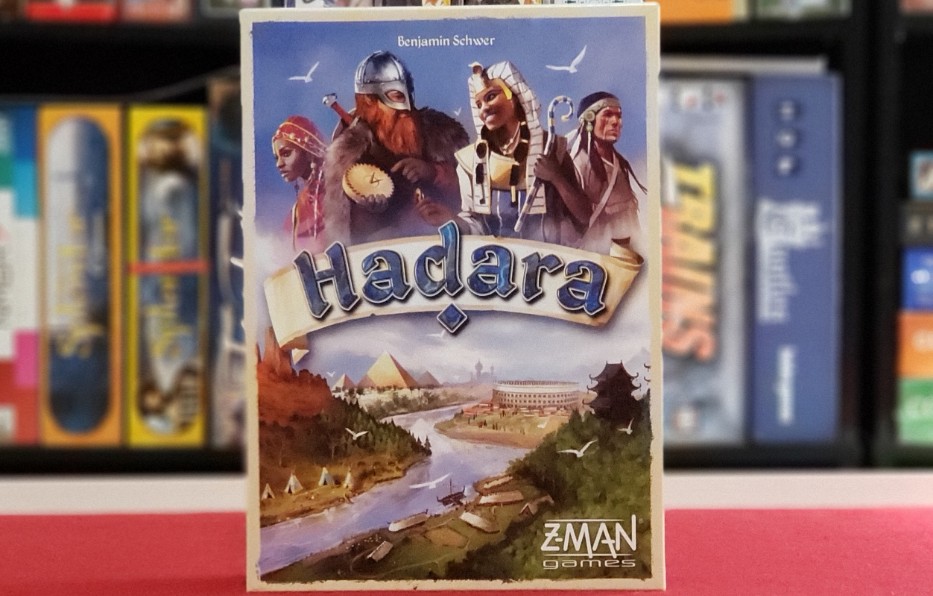
The board game industry is in a constant state of innovation. As soon as you learn the rules of a new game, there are ten more coming up behind it. It can make so that even games that are considered classics don’t get to make it to the table. I mean, I haven’t played Catan in about 4 years, and Ticket to Ride, Alhambra, and Carcassonne rarely see the table.
That’s why it’s always fun to see games that borrow mechanics from older games and add some new life. Or even better, when great mechanics from multiple games are smashed together into one awesome turducken of a board game. Hadara is an example of one of those games.
However, Hadara doesn’t just borrow mechanics from Splendor and 7 Wonders. Instead, it molds them together into an incredibly smooth, solid gameplay experience that is so satisfying, you may never play those classics again.
Laying the Foundations of a Civilization
Hadara tasks players with laying the foundations of a civilization over a series of three epochs. Each person will have to build up their economy, military, arts, and agriculture in order to be as successful as possible.
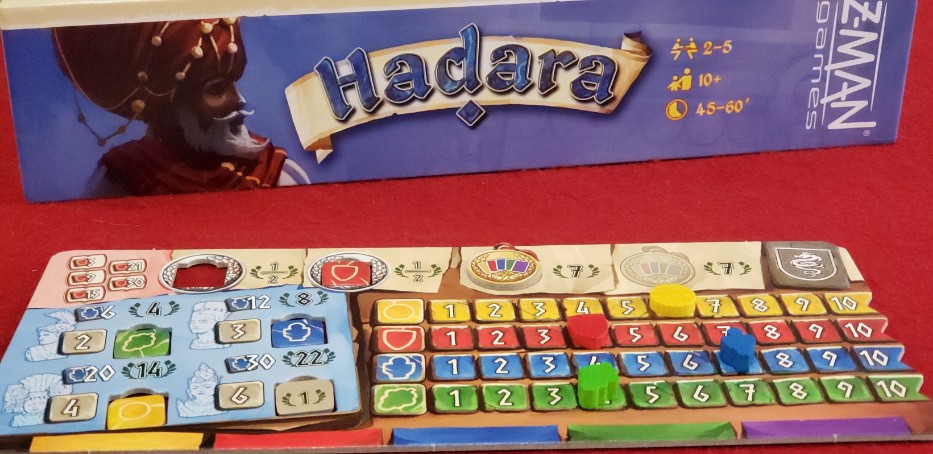
This evolution of your society takes place through the drafting of cards from five different categories. Four of the categories generally boost one of the four aforementioned characteristics, and there is also a fifth category that provides you will special skills that adjust how you play the game.
On a turn, players will draw two cards from one of the categories. They will choose one of the cards to either buy and add to their collection or to remove out of the game and receive money instead. The other card is added to a discard pile for that category. Players will get to draw cards from every category before the end of the round. You’ll get a very 7 Wonders or Sushi Go! vibe here.
Once these cards have been drafted and a few other things take place, players will then get to choose one of the cards from the top of all the discard piles. They then make the same decision as the last round – they can either buy the card and add it to their collection, or they can discard it and get money instead.
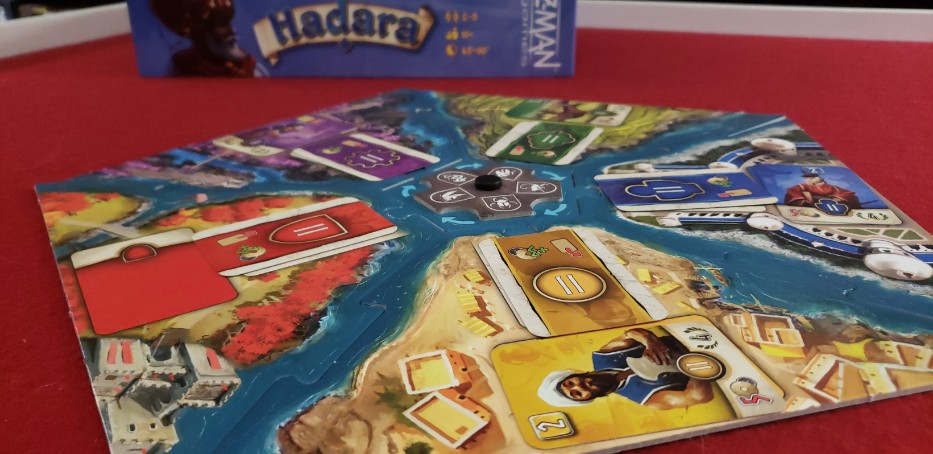
All of Life is Points
Many of these cards will increase your resources, most of which allow you to get victory points after each of the two card-drafting phases of each epoch. If you have enough military, for instance, you can colonize an area and get more resources. If you have enough arts, you can carve a statue that will also reward you with resources. Other resources include money, which you use to purchase cards, and food, which you must have enough of to “feed” all the people you’ve acquired on cards in the drafting phases.
The cards also give you a discount for future cards that you purchase in a category, similar to Splendor. So while the prices of cards goes up and up as the game continues, your buying power increases in a similar manner if you literally play your cards right.
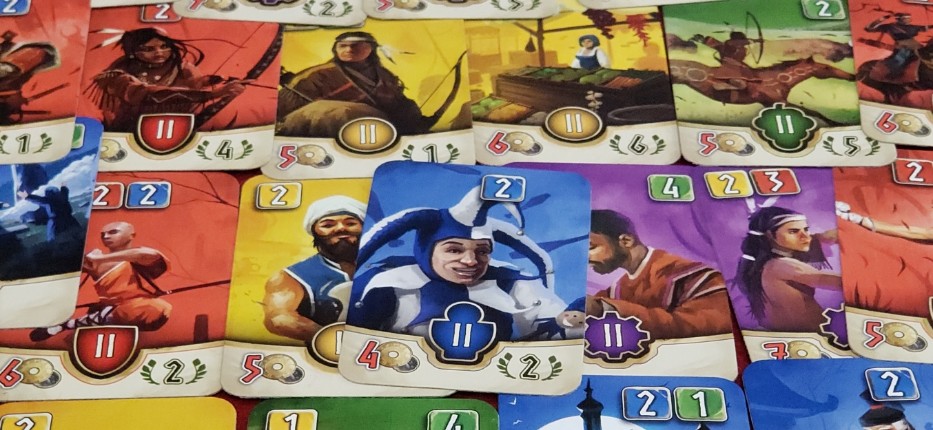
All of this purchasing and resource management all comes down to the victory points. These points are usually found on the cards that you’ll be drafting, but there are other methods by which victory points can be obtained. Once the game reaches the third epoch, all the points are added up, and the person with the most wins!
The Best of Both Worlds
As I mentioned, 7 Wonders and Splendor have heavily influenced this game. However, I believe that the designers took the best elements of those games and got rid of the shortcomings. In this game, for instance, card drafting is so much better. In 7 Wonders, hands of cards are passed around to players. You never know what’s coming next, so you have to evaluate every card in every hand to determine your best option. It’s a nightmare for people with analysis paralysis.
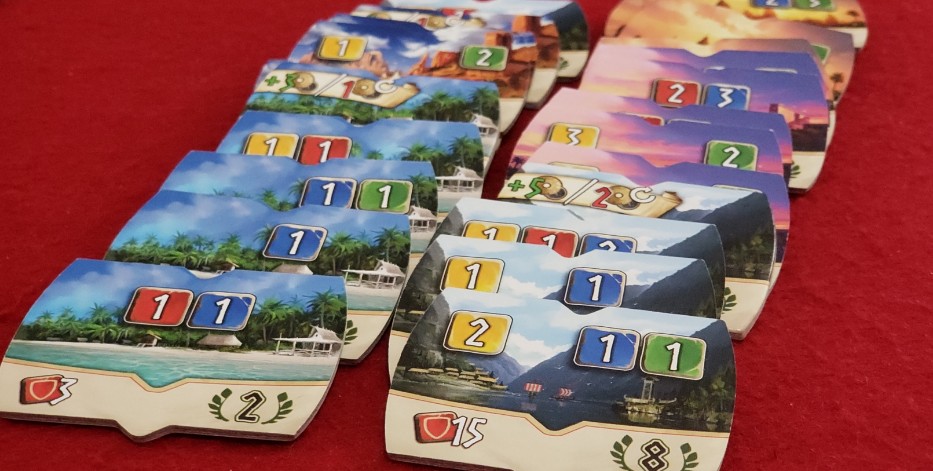
In Hadara, both card drafting phases work so much better. Players only take two cards at a time, and they take them from the same category. Therefore, both cards are usually doing about the same thing with only some slight variations to consider.
The order in which you will see each category is also pre-determined, so you often will know beforehand which cards you will want to consider and which ones you will just quickly get rid of for the money. The second phase of drafting also works much quicker because you are choosing from face-up cards which have been visible for several turns. As a result, you end up with a game that moves more quickly for all players involved.
Keeping a Balanced Budget
Since money is limited in the game, you won’t be able to buy every card you want. That’s where the game’s Splendor elements come into play. When you are purchasing cards, you pay one less for each card you already own in that category. Thus, some players will likely try to focus on just two or three categories so that they build a larger tableau at a cheaper price.
One of the bonus point mechanics supports this focus, as players can buy “medals” at the end of each round that will give them points for their progress along the resource track. As a balance, though, players can also buy medals that give them bonus points for each set of the five cards that they have collected. These medals become significantly more expensive from round to round, so the earlier a player makes a decision about their approach, the better.
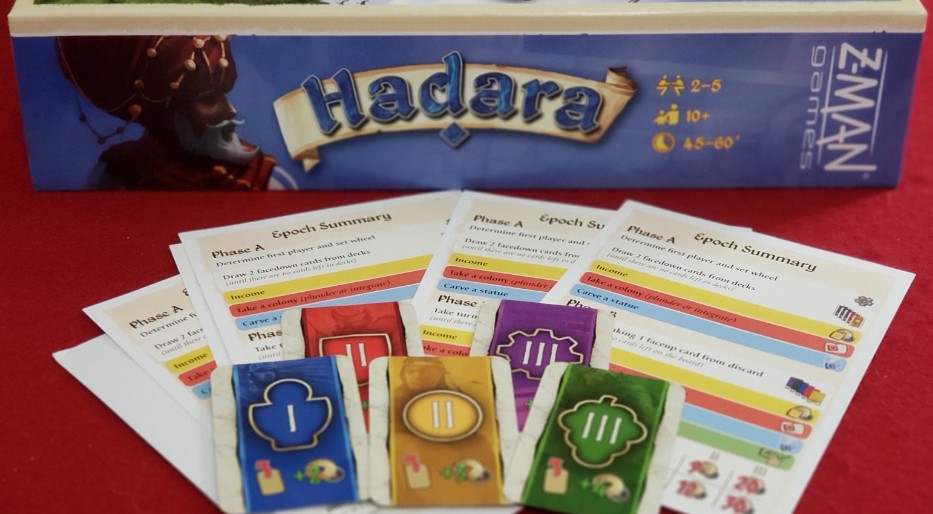
It All Comes Together
It may have come across already, but I thoroughly enjoy this game. It is so well-balanced and flows so smoothly from turn to turn that I think it will be a good addition to almost any gaming library. For experienced gamers who have played 7 Wonders and Splendor, it will only take about five minutes to explain the rules. For less experienced gamers, learning the ins and outs may take a little longer, but this game makes a great introduction to slightly more complex mechanics – like a step up from Ticket to Ride, Scrabble, and other more common gaming fares. As far as age goes, I think it all depends on their gaming experience level – if they can play the classics Hadara borrows from, they can play Hadara.
Right now, there are very few games that I would recommend more than Hadara for people looking for a traditional tabletop gaming experience for two to five players. I hope that it is able to get the attention that it deserves in the crowded board gaming market, becoming a classic just like the games it descends from.
You can pick up a copy of Hadara at your favorite local game store, on Amazon, or at other online retailers like Game Surplus.
Highs
- Great blend of mechanics that is intuitive and fast-paced
- Lots of gameplay in about an hour
- A fun experience you’ll want to come back to again and again
Lows
- Not everyone owns it yet and that means the world is not as happy of a place to live

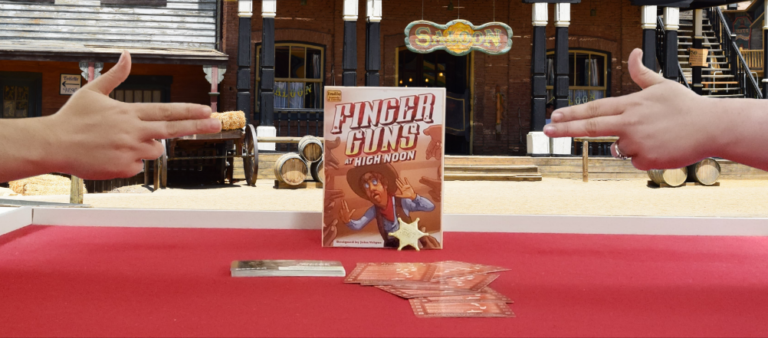
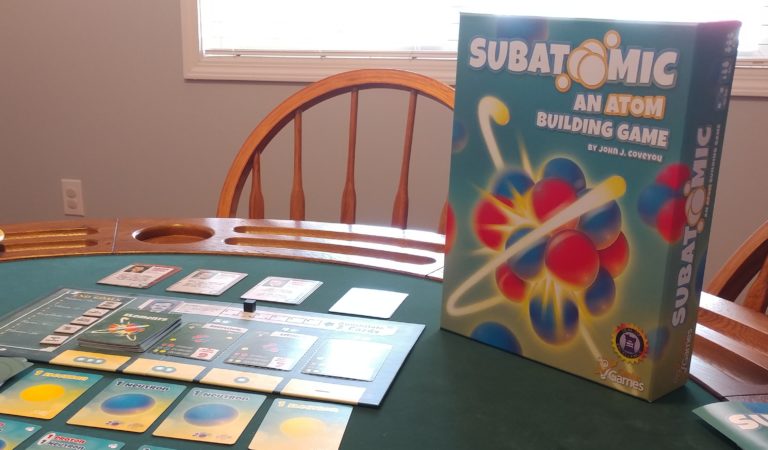
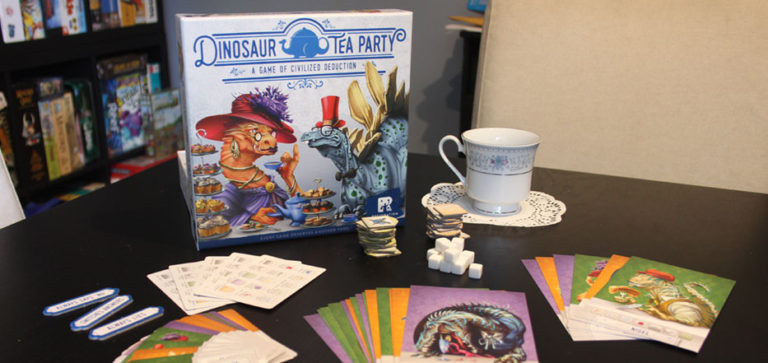
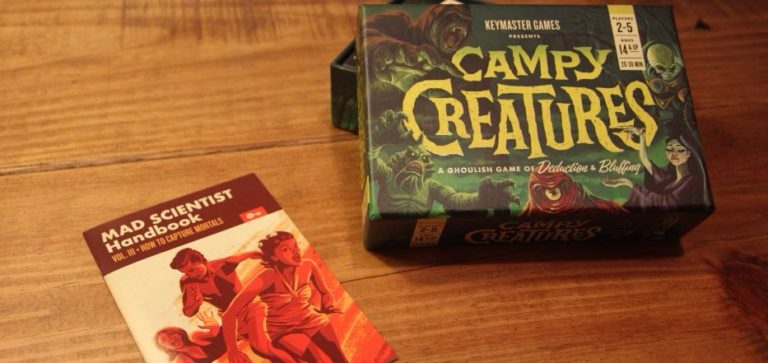
[…] Hadara Review […]
[…] Z-Man Games Number of Players: 2 – 5 Full Review | Purchase on […]
[…] 5. Taco Cat Goat Cheese Pizza 4. Echidna Shuffle 3. PARKS 2. Victorian Masterminds 1. Hadara […]
[…] Z-Man Games Released: August 2019 Full Review | Purchase on […]
[…] Z-Man Games Released: August 2019 Full Review | Purchase on […]
[…] Yes, I love this game. Lots and lots. You can check out my review of the game or watch our live playthrough if you don’t believe me. So I was very excited when this game […]
[…] it’s a genre, or that it’s centered around a particular mechanic. But I’m a really big fan of Hadara, The Quest for El Dorado, and other games in which I can come up with several plans all at once […]